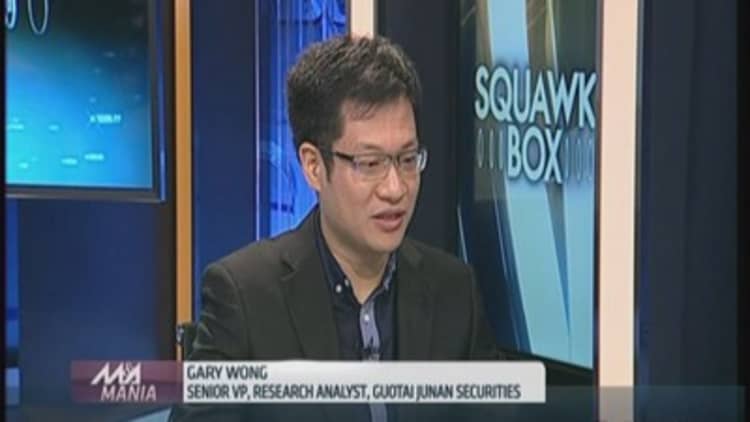China's two dominant manufacturers of railway equipment were on a roll at the end of October.
China CNR won a contract to supply more than 280 subway cars to Boston's transit system in the first successful US bid by a Chinese rolling stock company. A few weeks later a consortium including CNR's main domestic rival, CSR, secured the country's first ever overseas contract for a high-speed rail project, awarded by the Mexican government.
By early November, however, the Mexico contract had been cancelled and CNR and CSR both suspended trading in their shares ahead of a possible government-mandated merger that could reshape the global rail industry. The two companies already rank as the world's largest manufacturers of rolling stock, with annual sales of about $16 billion each.
A decade after splitting CNR and CSR off from the same state-owned parent to promote competition in the domestic rail sector, the Chinese government now thinks the strategy has been too successful. It wants to recombine the two to prevent them from undercutting each other abroad.

"They should have merged earlier," says Zhao Jian, a transport expert at Beijing Jiaotong University. "We have to avoid situations in which they are at each other's throats. Only the foreign fisherman benefits when Chinese sandpipers and oysters fight." CNR and CSR, Mr Zhao adds, both invest about 2 per cent of revenue in research and development, much of it duplicated, compared with reinvestment of 5 per cent for international rivals such as Siemens.
Chinese press reports have cited multiple examples of self-defeating competition between the two companies, including a Turkish locomotive tender for which CNR bid below cost and another in Argentina where CSR submitted a bid almost 50 per cent cheaper than its domestic rival. CNR and CSR declined interview requests.
Read MoreChina wants to build the world a railway
The Boston contract, awarded in October, illustrated just how divergent the two companies' performance can be. While the Massachusetts Department of Transportation was effusive in its praise of CNR's bid — which came in at $570 million compared with a $1 billion proposal from Bombardier of Canada — it disqualified CSR. Massachusetts officials said CSR's bid was considered "unacceptable" in three categories including technology, manufacturing and quality assurance.
CNR's bid also included a novel $60 million investment in a final assembly facility in western Massachusetts that will create 250 jobs.
"The Boston deal shows that Chinese railway companies can compete against foreign brands," says Robin Xu, a Shanghai-based transport analyst with UBS Securities. "We're going to see more orders in future."
According to Mr Xu, the final assembly facility was unusual as CNR and CSR typically bolt their trains together in China, where large economies of scale allow them to offer prices 50 per cent lower than their international competition.

Rebounding from its failure in Boston, CSR's participation in the Mexico contract was a much bigger prize. It represented the first overseas export order for high-speed rail technology from China, which has built out the world's largest high-speed train networks in just five years. According to a recent World Bank study, China has laid more than 12,180 km of high-speed track — four times longer than the world's second- and third-largest networks, in Spain and Japan respectively.
But CSR was not able to enjoy its coup for long. Within days the contract was rescinded after objections from Mexican legislators, who said it had been issued too hastily.
More from The Financial Times:
Moscow orders state-owned exporters to sell foreign currency
Xi graft purge snares predecessor's aide
Japan stocks count on Abe's third arrow hitting home
Partly because of the hurried tender process, the Chinese consortium was the only bidder. It also emerged that a Mexican member of the Chinese group had built a mansion for Mexico's first lady, who has vehemently denied any wrongdoing. State-owned China Railway Construction Corp, which led the consortium, has vowed to bid again for the project when it is retendered.
CSR and CNR could participate in the consortium's second bid as either a merged entity or through a new joint venture focused on overseas markets. After denying merger reports in September, both companies' shares have been suspended from trading since October 27 pending an announcement regarding a "significant event".
A full-blown merger of the two would be a victory for China's State-owned Assets Supervision and Administration Commission, which prioritizes the efficiency and returns of national industrial champions over the wishes of the National Development and Reform Commission, a regulator more concerned about domestic competition and prices.
A merger would also set off a scramble for jobs at the combined entity among senior CNR and CSR executives. Sasac and NDRC officials declined to comment.
"Sasac's primary goal is to co-ordinate the two companies' development and establish a good foundation for exports," says Li Jia, an analyst at Huachuang Securities. "CNR and CSR are not happy about it."


